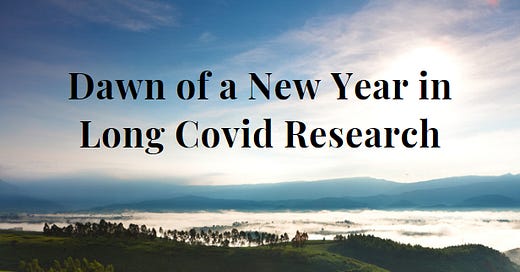Refreshed in the New Year 2024, to take on the challenge of Long Covid research
Why not take a look at this FREE Long Covid course on Learnworlds?
Transcript
Hi, I'm Dr. Philip McMillan.
And thank you for joining me in this new year 2024. I usually take a period of time around Christmas to step away from research, and just to reflect and then come back to it. And so this is me stepping back into almost my third year of long Covid research, who would have thought at the beginning that it could have taken this long.
However, I recognise that this is complex and in truth this issue of post-viral disease has not been properly researched and addressed even prior to the Covid pandemic.
There is a lot of research that needs to be done to be able to make sense of all the pieces. So as part of this process I stepped back to my most recent presentation where I was looking at my take on the science. If you haven't seen it yet, I think it's worthwhile. It's free and it's on my Learnworlds site.
You just have to register for it, Here >
The reason why I think this is so important is because as I look back at it now, I know that all the answers are not there. But I do believe that the framework for the pattern of disease is, and primarily, my focus has been that I could generally predict who would end up with Long Covid because the risk is not the same across the population.
What is it about some people that puts them at higher risk?
Without an understanding of that, there is very little that you can do to mitigate. And so that's been part of my research, which is to understand the characteristics.
Without a shadow of a doubt, people who have pre-existing inflammation seems to have a much higher risk of ending up with long Covid symptoms.
Based on the presentation that I did, that fits with the imbalance that occurs when regulatory T cells are affected and therefore unable to control inflammation as effectively as they did before the infection.
This is a critical piece of understanding because it still takes me back to the critical important point that without addressing the source of underlying inflammation that was pre-existing to the Covid infection is very difficult to resolve the problem.
Now that takes work and oftentimes many people want just a simple solution, a treatment and then it goes away. That's been, therefore, one of the challenges when reflecting on how to manage longer term long Covid patients.
It's one part to manage symptoms in the short term. But what about the long term issues in terms of bringing that under control so that the longer term risk is reduced?
It's kind of like giving someone pain relief for headaches related to elevated blood pressure, but not addressing the fact that the blood pressure is elevated, which would carry long term risk. So that's the way that I tend to look at things, understanding the primary pathophysiology, addressing the silent bits of the pathophysiology so that the risk is much lower moving forward.
There's still a lot of work ahead, and primarily for patients, it's just about can I get some way to cope with the symptoms?
And there are solutions for that. But what seems to be clear is that the solutions are not one approach. It needs multiple approaches, which also depends on the specific characteristics of each patient.
So this is complex, but I do feel reinvigorated looking forward to the next year, because I do think now that if my principles are in place, we have put together our research paper, which hopefully may be submitted soon, about where we think viral remnants are located in the body.
And when I put all of that together, I do believe we're coming to the light at the end of the tunnel in terms of understanding.
But effective treatments will still be a few steps beyond this. But sadly, there are no quick answers. But the important thing is that I think the answers will come in time.
Let's have a wonderful year together.
Thank you.















Share this post